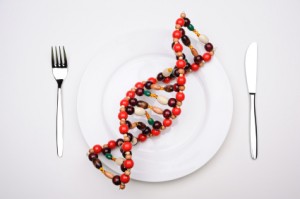 SACRAMENTO, CA – Both sides in the debate over the use and labeling of genetically modified foods are preparing for a showdown in ballot initiatives in California this fall. Both opponents and proponents believe a probable November vote may well change the face of American agriculture for many years to come.
SACRAMENTO, CA – Both sides in the debate over the use and labeling of genetically modified foods are preparing for a showdown in ballot initiatives in California this fall. Both opponents and proponents believe a probable November vote may well change the face of American agriculture for many years to come.
Almost all processed foods in the United States (snack foods, cereals, etc…) have legally contained ingredients from plants with DNA manipulated in laboratories. Though a host of scientists and regulators claim such food pose no danger, a growing number of Americans are beginning to suspect differently and calling for labeling that identifies the presence of genetically modified ingredients.
Labeling bills have been proposed in more than a dozen states along with an appeal to the Food and Drug Administration that garnered over a million signatures. Supporters of labeling contend that consumers have a right to know when food has been genetically.
“It just makes me nervous when you take genetic matter from something else that wouldn’t have been done in nature and put it into food,” said Ms. LaPier, 44, a mental health counselor whose guerrilla labeling was inspired by the group Label It Yourself. She worries that her daughter, 5,
But a number of farmers are joining forces with food and biotech companies to fight back. They say such labels could cause consumers to reject genetically modified food without understanding its economic and environmental benefits. Tim Burrack, an Iowa farmer, criticized this month’s O, the Oprah Magazine, which cited research linking genetic engineering to health concerns that many scientists have discredited. Burrack urged Ms. Winfrey not to “demonize GM crops.”
The chairman of Stonyfield Farms an organic yogurt company, Gary Hirshberg has raised more than $1 million for the Just Label It campaign. Its goal is to influence the F.D.A. after fighting approval of engineered alfalfa, arguing that cross-pollination would contaminate organic crops fed to cows. “This is an issue of transparency, truth and trust in the food system,” said Hirshberg.
Biotechnology companies claim the California labeling initiative, though portrayed as promoting consumer choice, is really an effort by some consumer and environmental groups and organic food growers to drive genetically modified foods off the market. “These folks are trying to use politics to do what they can’t accomplish at the supermarket, which is increase market share,” said Cathleen Enright, an executive vice president at the Biotechnology Industry Organization.
If the California initiative passes, “we will be on our way to getting GE-tainted foods out of our nation’s food supply for good,” wrote Ronnie Cummins, director of the Organic Consumers Association. “If a company like Kellogg’s has to print a label stating that their famous Corn Flakes have been genetically engineered, it will be the kiss of death for their iconic brand in California — the eighth-largest economy in the world — and everywhere else.”
When asked if they wanted genetically engineered foods to be labeled, about 9 in 10 Americans said that they did, according to a 2010 Thomson Reuters-NPR poll. The current call for transparency has resonated among some Americans upset by reports of BPA (a chemical used in plastics) in food packaging and pink slime (an ammonia-treated additive) in meat.
So far, the FDA has said only that it is studying the labeling petition; none of the state-level labeling bills proposed over the last year have passed. But In California, the Legislature would be bypassed by a direct popular vote.